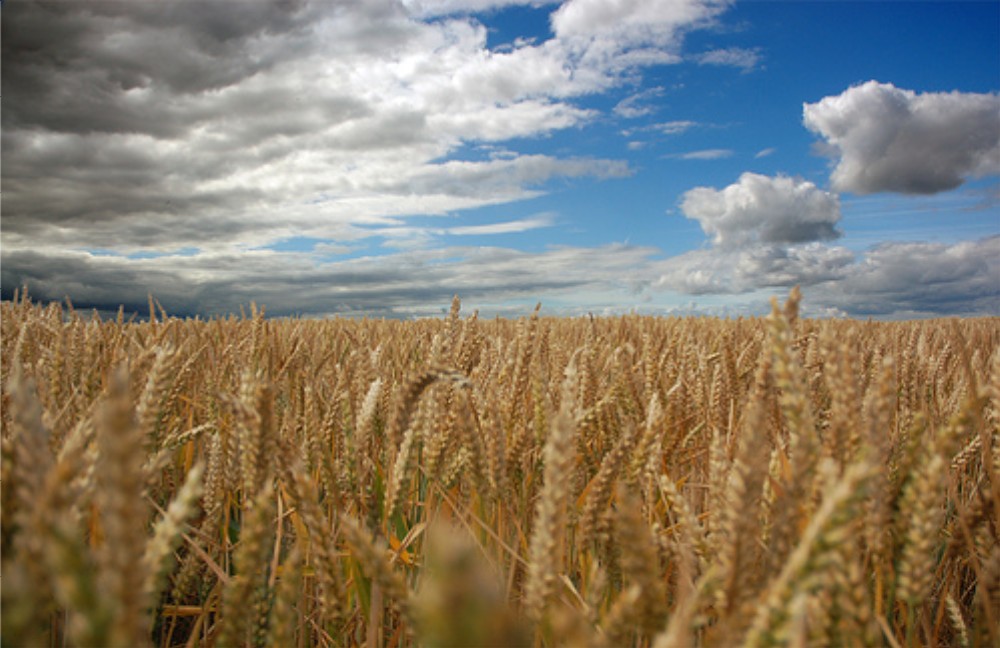
Weetabix, the nation’s favourite breakfast cereal, has today reaffirmed its commitment to source the wheat it purchases each year from farmers located within 50 miles of its factory in Burton Latimer, Northamptonshire.
The announcement coincided with a visit from the Environment Secretary Elizabeth Truss to a local farm that supplies Weetabix. The establishment of Weetabix’s Wheat Protocol goes beyond the requirements of the Red Tractor Assurance Scheme and Entry Level Environmental Stewardship scheme to further reduce food miles and fertilizer usage.
Weetabix will exclusively source wheat for Weetabix biscuits from two local wheat merchants, Gleadell and Fengrain. 2016 will be the sixth harvest since the establishment of Weetabix’s industry leading “wheat protocol” in 2010. The protocol covers a series of commitments to guarantee the quality of the wholegrain wheat and to ensure the protection of the local environment.
In contrast to cereal manufacturers that buy wheat on the open market, Weetabix has worked with its farmers to establish a strict protocol covering quality, consistency, traceability and environmental sustainability of the harvest. The arrangement brings many benefits; boosting the ability of local farmers to invest in higher standards, providing great tasting British wheat for British breakfast bowls, and providing Weetabix with a consistent quality of wheat for its mills.
Environment Secretary Elizabeth Truss said: “From farm to fork, our food industry adds more than £100 billion to our economy every year and is vital to Britain’s future. Every food and farming business can play a role in making British food a world leader and Weetabix is a fantastic example of the vision, creativity and innovation that has built the UK’s global reputation for quality, tradition and safety.
“As part of 2016 Year of Great British Food we want more companies like Weetabix creating top-quality products using locally-grown ingredients and supporting farmers across the country and helping grow our One Nation economy.”
Following changes to the government’s countryside stewardship scheme, Weetabix consulted with its Growers Group, a council of local farmers, on changes to the wheat protocol. For the 2016 harvest Weetabix has agreed a series of commitments to ensure the safety , local provenance, quality and traceability of the wheat it uses for the famous Weetabix cereal. Weetabix is the second largest player in the UK cereal market which is valued at £2 billion annually.
Hitesh Bhatia, Ingredient Purchasing manager at Weetabix said: “If we’re to succeed in helping our consumers feel incredible inside, the quality of wheat inside Weetabix has to be incredible too. With the support of our growers as well as Gleadell and Fengrain I know that every single one of the 365 grains in each Weetabix biscuit is absolutely packed full of essential protein, iron and wholegrain goodness. Reviewing our wheat protocol in partnership with our farmers will allow us to continue to guarantee a best in class breakfast for the British public.”
NFU combinable crops Chairman Mike Hambly said: “Backing British farming has never been so important and it’s great to see that Weetabix are developing this commitment with local farmers; 78% of shoppers want to see more British food on the shelves and 86% want to buy more traceable food from British farms. Farmers need this support, as demonstrated by Weetabix, if their businesses are to continue contributing so positively to the country’s economy and environment.
“Our farmers produce a high-quality product which Weetabix will continue to reap the benefits of; over 17,000 arable farmers in England and Wales adhere to Red Tractor assured food standards. Farmers can produce while nurturing wildlife– they grow the quality wheat Weetabix demands alongside voluntarily managing 250,000 hectares of land to support habitats and protect natural resources.
Farmer Robert Rouston, whose farm in Leicestershire supplies wheat to Weetabix, said: “To grow wheat for Weetabix is a local badge of honour. This year we have over 500 tonnes growing well, and I know the quality of my wheat will be reflected in every spoonful enjoyed at British breakfast tables. This will be my fifth harvest with Weetabix and I’ve noticed a real improvement in the wildlife I see as I walk my fields. We don’t own the land, we’re merely stewards for the next generation, and with Weetabix’s support I’m confident for the future of the British countryside.”
Weetabix’s promise to use quality British wheat is supported by the brand’s commitment to provide a healthy and nutritious breakfast cereal that doesn’t compromise on taste. With price conscious shoppers putting cereal aisles under pressure, Weetabix has committed £10 million to a TV and digital advertising campaign, its largest marketing investment since 2008. The efforts are paying off, with Weetabix demonstrating year on year growth of 6%, expanding its share of the market and helping to protect the livelihoods of British farmers.
See also - British brands to take the world by storm through new 'British Food Unit'
